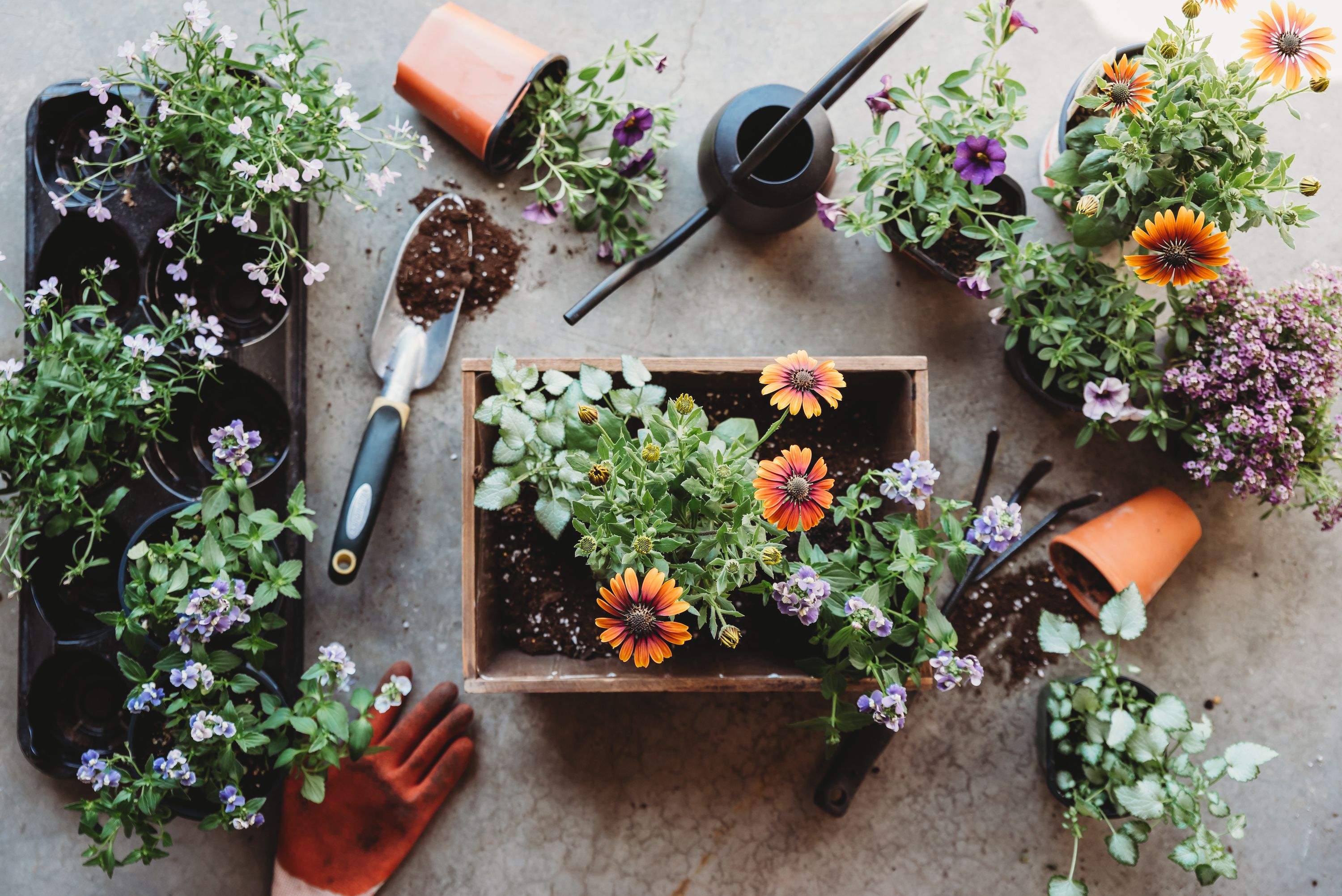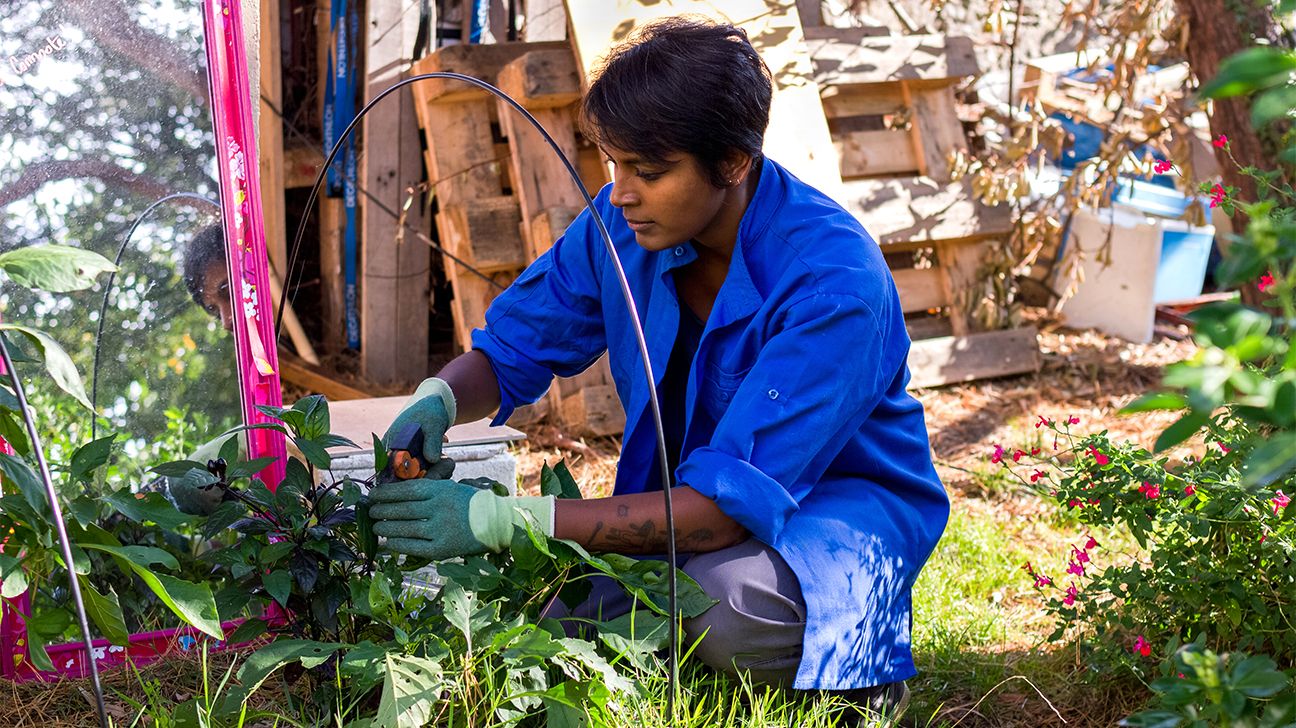Gardening 101: Building Your Ultimate Gardening Kit for Beginners
Wiki Article
Growing Environment-friendly Thumbs: a Novice's Journey Into the World of Gardening
Are you eager to get your hands unclean and begin growing your very own yard? Look no more! In this short article, we'll take you on a beginner's journey right into the globe of gardening. You'll learn more about selecting the right plants, understanding soil and compost, and vital gardening devices. We'll also educate you watering and fertilizing techniques and how to manage common garden bugs. Get prepared to grow your green thumb and view your garden prosper!Choosing the Right Plant Kingdoms
1. Initially, you need to analyze your horticulture space and establish the number of plants that will certainly fit easily. Because overcrowding can lead to stunted development and condition, this step is critical. Step the measurements of your garden beds or pots and compute the available area. Consider the mature dimension of the plants you intend to grow. Some veggies and herbs require more area than others, so it's important to do your research study.When you have a clear idea of your gardening area, it's time to select the best plants. Specific plants prosper in complete sunlight, while others like partial color. This will assist you choose plants that are fit to your particular conditions.
If you're new to horticulture, choose for plants that are easy to expand and need very little maintenance. Select plants that have a much shorter maturity period if you live in a region with a much shorter growing period.
Comprehending Soil and Compost
Soil is the foundation of your yard, offering nutrients, water retention, and assistance for your plants. It is important to have a great understanding of your soil type, whether it is sandy, clayey, or loamy, as this will identify the kinds of plants that will certainly flourish in your garden. Keep in mind, a fertile and healthy soil is the essential to a successful yard, so take the time to understand your soil and include garden compost to ensure your plants grow.
Crucial Horticulture Tools
Currently that you comprehend the significance of soil and compost, allow's explore the essential gardening devices you'll need to grow your environment-friendly sanctuary. One of the a lot of fundamental devices you'll require is a garden trowel. This little portable tool is best for excavating small openings, transplanting seedlings, and scooping soil. One more vital tool is a yard fork. This sturdy device is made use of for loosening up dirt, damaging up globs, and turning compost. A good set of horticulture gloves is an essential to secure your hands from thorns, irritable plants, and dirt. Look for handwear covers that are sturdy, breathable, and supply an excellent grasp. A yard hose pipe or watering can is essential for maintaining your plants moistened. Pick a tube with a spray nozzle that allows you to adjust the water flow and stress. A tough pair of trimming shears or secateurs is important for trimming and shaping your plants. Search for shears with a sharp blade and comfy handles. Lastly, a garden rake serves for leveling dirt, eliminating debris, and spreading compost. With these crucial tools in your gardening arsenal, you'll be well-appointed to produce and preserve your eco-friendly sanctuary.Watering and Feeding Techniques

Handling Common Garden Pests
As a newbie gardener, you might come across typical yard pests that can damage your plants. These bugs can range from pests like beetles, caterpillars, and aphids, to little pets like rabbits and squirrels. It is necessary to be able to determine and deal with these parasites effectively in order to protect your plants and make sure a successful yard.Among the very first steps in dealing with yard pests is to on a regular basis inspect your plants for any type of indications of problem. Look for eaten fallen leaves, openings in the foliage, or the presence of little pests. It's crucial to take action instantly to avoid them from spreading out and triggering further damages. if you spot any kind of bugs.
There are several approaches you can make use of to regulate yard pests. One choice is to utilize all-natural killers, such as ladybugs or praying mantises, to assist manage the populace of parasites. You can likewise use physical barriers, such as fencings or netting, to keep larger pets like rabbits out of your garden. Furthermore, there are natural bug control sprays offered that can assist deter and remove typical garden insects.
Bear in mind, prevention is key when it pertains to taking care of garden pests. Maintaining your yard cost-free and clean of debris can assist reduce the likelihood of an invasion. Consistently removing weeds and dead plants can likewise aid eliminate hiding locations for bugs.

Conclusion
Congratulations on completing your beginner's journey into the globe of horticulture! By choosing the right plants, comprehending soil and compost, utilizing essential horticulture devices, and mastering watering and feeding methods, you have actually established yourself up for success. Do not fail to remember to remain alert in managing usual yard parasites to guarantee your plants flourish. With your newfound understanding and green thumbs, your garden will certainly thrive and bring you endless joy and beauty (gardening kit for beginners). Pleased gardening!Soil is the foundation of your garden, providing nutrients, water retention, and support for your plants. It is important to have an excellent understanding of your soil kind, whether it is sandy, clayey, or loamy, as this will determine the types of plants that will prosper in your yard. Remember, a healthy and abundant soil is the key to a successful yard, so take the time to understand your soil and integrate compost to guarantee your plants prosper.
As a beginner garden enthusiast, you might encounter usual yard bugs that can wreak chaos on your plants. It's vital to be able to identify and deal with these pests properly in order to protect your plants and make sure a successful garden.
Report this wiki page